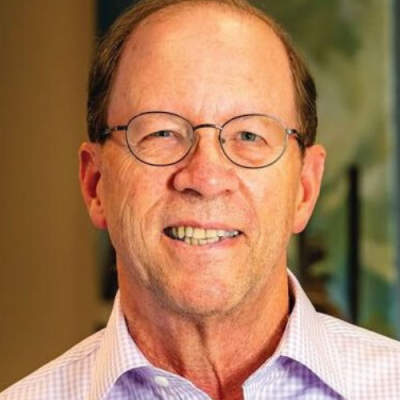Apologist makes case for existence of God amid rise in atheism

Christian author Richard E. Simmons III is concerned.
While watching a Democratic presidential debate in 2019, he saw a TV advertisement in which Ron Reagan, the son of former President Ronald Reagan, boldly promotes atheism.
“Ron Reagan, lifelong atheist, not afraid of burning in Hell,” read the tagline for the Freedom From Religion Foundation ad.
Two days after viewing the commercial, Simmons read an article in The Wall Street Journal about the faith decline in America, and a short time later, another article that reported 44% of Americans ages 18 to 29 identify as religious “nones.”
“It was truly shocking,” Simmons, an author, speaker, and the executive director of The Center for Executive Leadership, a nonprofit, faith-based ministry in Birmingham, Alabama, told The Christian Post. “It really concerned me and made it clear that this is a really big issue in our culture right now.”
A seasoned author and apologist, Simmons had been conducting research for a book on the existence of God for 25 years. This year, motivated by the belief that “atheism is on the rise, not only in our country but around the world,” he finally published that book.
Reflections on the Existence of Godis a collection of 57 essays divided into 10 sections. Each essay can be read in less than 10 minutes. It seeks to answer the question: Does God exist? by examining topics including evil, morality, human experience, evolution and the psychology of unbelief, and more.
“So many books on the existence of God are very weighty, and in many cases, hard to read,” Simmons said. “I wanted something for the average person: A very well-researched book that provides much of the evidence for the existence of God that is available.”
Simmons, who became a Christian at the age of 20, said that through his research, he became increasingly convinced that atheism is “one massive contradiction.”
“It's hard to live out the atheist worldview because the evidence for it is very weak, whereas Christianity offers a very coherent, easy to understand view of life,” he said.
According to the author, one of the most compelling cases for the existence of God is the “fine-tuning argument,” which speaks to the intricacy of the universe. He explained that there are 122 variables that must line up perfectly for the universe to exist. If even one variable is slightly off, the universe could not support life.
“It’s remarkable,” he said.
But despite the evidence of God’s existence, atheism is rising in popularity due in part to “willful blindness,” Simmons said.
Many people are afraid of the truth,” he explained. “We like truth that takes us in a direction that we want to go, but when it doesn’t, we balk at it. We fear it. We’re afraid to look at reality in the eye.”
“We are such a feelings-driven culture; we're into feeling good, and so we like to pursue what our feelings are telling us,” he added. “It impacts our moral decisions. You’ve got to be willing to follow the truth wherever it leads, but I think a lot of people aren't willing to do that. They’d rather follow their emotions, wherever they lead.”

Though doubt is a “good thing,” it’s important to “deal with your doubts,” Simmons stressed.
“With this book, I’m targeting skeptics, but I’m also targeting young people, particularly young Christians, so they can really be better equipped to go out and engage in this culture that we live in.”
When it comes to engaging with those who deny the existence of God, Simmons stressed the importance of presenting unwavering biblical truth in a loving way.
“The Scripture is clear: We’re called not to be judgmental, but we’re called to make moral distinctions,” he said. “We're called to make distinctions of what is true and what is false. In the process we will have confrontation, we will have disagreement. You have to stand up for what the Bible teaches, ‘This is the position that I take, because this is what Scripture says.’”
“But yet, we have to do it in a kind and loving and gentle way, if that is possible,” he continued. “And that's not always possible, particularly when anger is involved. But I encourage Christians: Whenever you get into any kind of contentious debate or discussion, always try to say, ‘I'm seeking for this conversation to produce light and not heat.’ And that, to me, is so significant. It's important to have conversations where you're seeking enlightenment and it doesn't lead to anger.”
Despite discouraging statistics — recent reports from Barna and other researchers have that Americans’ identification with atheism continues to increase — Simmons expressed optimism that “some of the best years for the Christian faith are in front of us.” He suspects that the future church in America, however, will look significantly different from today's church.
“I don’t think we’ll have denominations in the same way we do now,” he said. “People take pride in saying, ‘I'm Baptist, Methodist, or I'm Episcopalian,’ and historically, that was fine. But many mainline denominations today just kind of exist as a church without teaching the basics of the faith. I don’t know that the church does a good job of teaching people how to pray or seek God in the Scriptures.”
As many large denominations depart from core biblical truths, Simmons said he believes multicultural, nondenominational churches will continue to grow in popularity and attract Christians seeking the truth.
“We definitely have a battle ahead of us, because there are so many people that are antagonistic toward Christianity and the church, particularly the evangelical side, he said.
“Yet, I have hope for the future, and I’m excited about what’s ahead,” Simmons added. “When you live in a culture that is really lost and really searching for answers, I think the Christian faith has an incredible opportunity to really flourish.”


























